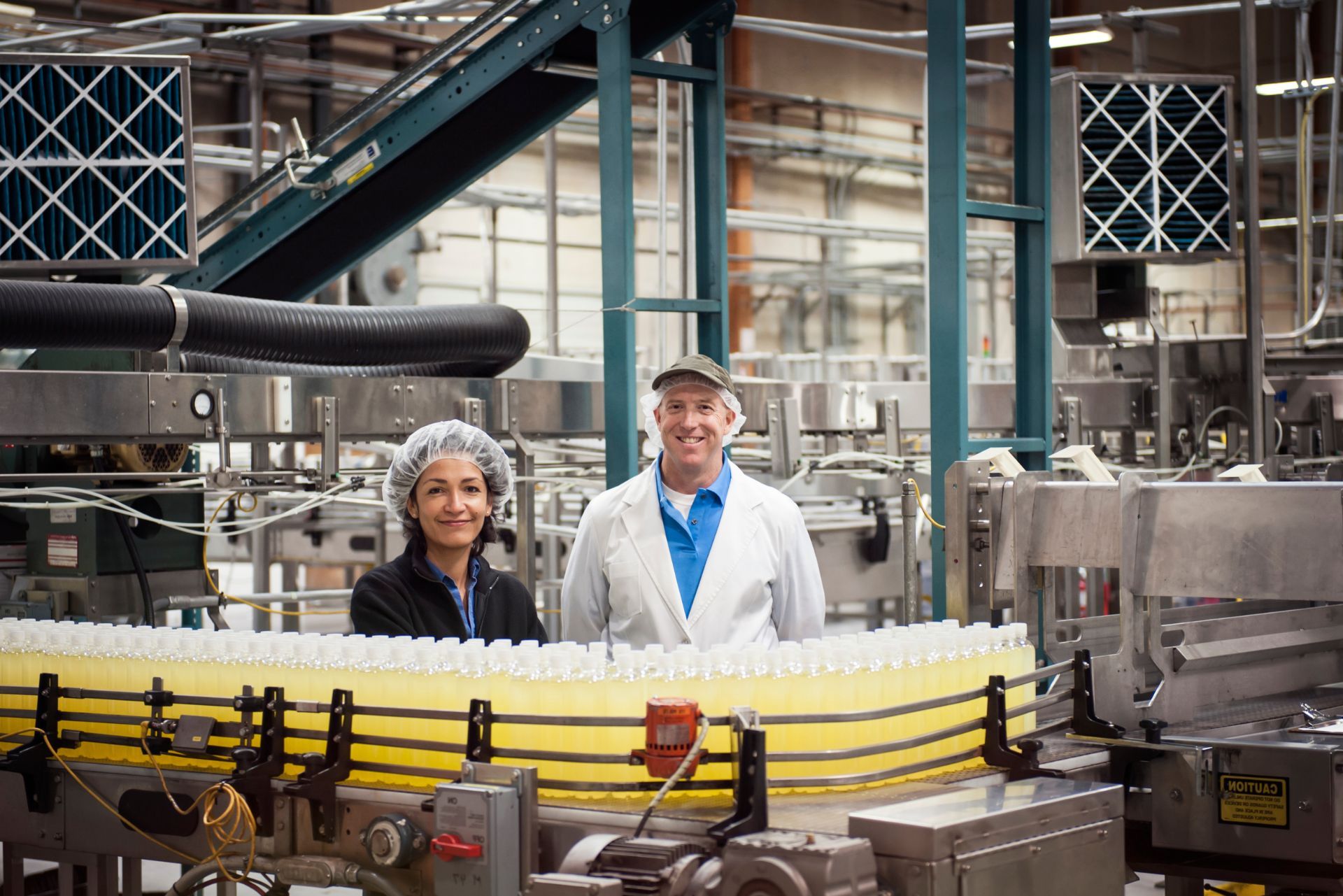Top 3 Recommended Policies

Understanding Beverage Distributors Insurance
Beverage distributors play a crucial role in the supply chain, ensuring that various drinks reach retailers and consumers efficiently. However, like any business, they face unique risks that can lead to significant financial losses. This is where beverage distributors insurance comes into play. It is designed to protect these businesses from a range of potential liabilities and unforeseen events.
This type of insurance covers various aspects of the beverage distribution business, including property damage, liability claims, and even employee-related issues. Understanding the nuances of this insurance can help distributors choose the right coverage to safeguard their operations. Additionally, the dynamic nature of the beverage industry, with its constant introduction of new products and evolving consumer preferences, makes it essential for distributors to stay informed about their insurance options and any changes in regulations that may affect their coverage.
The Importance of Insurance for Beverage Distributors
Insurance is not just a legal requirement for many businesses; it is a vital component of risk management. For beverage distributors, the stakes are high. A single incident, such as an accident during transportation or a product liability claim, can lead to devastating financial repercussions. The potential for loss extends beyond immediate financial impacts; it can also damage a distributor's reputation, leading to a loss of customer trust and future business opportunities.
Moreover, the beverage industry is highly regulated, with strict guidelines governing the distribution of alcoholic and non-alcoholic beverages. Insurance helps ensure compliance with these regulations, providing peace of mind to distributors as they navigate the complexities of their industry. Furthermore, having robust insurance coverage can enhance a distributor's credibility with suppliers and retailers, demonstrating that they are prepared to handle risks responsibly and are committed to maintaining high standards of safety and quality.
Types of Coverage Available
Beverage distributors insurance typically includes several types of coverage to address the various risks associated with the business. Here are some of the most common types:
- General Liability Insurance: This covers claims related to bodily injury, property damage, and personal injury that may occur during business operations.
- Commercial Auto Insurance: Essential for distributors that use vehicles to transport beverages, this insurance protects against accidents and damages involving company vehicles.
- Product Liability Insurance: This protects against claims arising from injuries or damages caused by the beverages distributed, covering legal fees and settlements.
- Workers' Compensation Insurance: This is crucial for protecting employees who may be injured while on the job, covering medical expenses and lost wages.
In addition to these standard coverages, many distributors may also consider specialized policies tailored to their specific needs. For instance, some may opt for spoilage coverage to protect against losses from perishable goods that may not reach consumers in time due to unforeseen delays. Others might invest in
cyber liability insurance, which has become increasingly important as more businesses rely on digital systems for inventory management and sales tracking. By exploring these additional options, beverage distributors can create a comprehensive insurance strategy that addresses their unique operational challenges and enhances their overall resilience in a competitive market.

Assessing Your Insurance Needs
Determining the right amount and type of insurance coverage for a beverage distribution business requires careful assessment of various factors. Each business is unique, and understanding specific needs is essential for adequate protection.
Evaluating Risks
The first step in assessing insurance needs is to evaluate the risks associated with the business. This includes analyzing the types of beverages distributed, the methods of transportation used, and the locations served. For instance, distributing alcoholic beverages may involve additional risks and regulatory requirements compared to non-alcoholic beverages.
Additionally, consider the size of the operation. A larger distribution network may face more significant risks, necessitating broader coverage. Engaging with an insurance professional can provide valuable insights into potential vulnerabilities. It is also crucial to assess the supply chain and any third-party vendors involved in the distribution process, as their reliability and practices can impact your overall risk profile. Understanding the likelihood of accidents, theft, or product liability issues is vital in determining the necessary coverage to protect your assets and operations.
Consulting with Insurance Professionals
Working with an insurance agent who specializes in beverage distributors can be incredibly beneficial. These professionals have a deep understanding of the industry’s unique challenges and can recommend tailored coverage options.
They can also help navigate the complexities of insurance policies, ensuring that all necessary elements are included. This partnership can save time and money while providing peace of mind that the business is adequately protected. Furthermore, a knowledgeable insurance agent can assist in identifying emerging risks in the beverage industry, such as changes in consumer preferences or regulatory shifts, which may necessitate adjustments in coverage. Regular reviews of your insurance portfolio with your agent can ensure that your business remains compliant and protected against evolving threats, allowing you to focus on growth and operational efficiency.
Common Challenges in Securing Insurance
While securing insurance is essential, beverage distributors often face several challenges in obtaining the right coverage. Understanding these challenges can help businesses prepare and respond effectively.
High Premium Costs
One of the most significant challenges is the cost of premiums. Due to the inherent risks associated with beverage distribution, insurance premiums can be relatively high. Factors such as the type of beverages distributed, the geographical area, and the claims history of the business can all influence costs.
To mitigate these costs, distributors should consider implementing risk management strategies that can lower their risk profile. This may include investing in safety training for employees, maintaining vehicles properly, and developing efficient logistics systems. Additionally, distributors can explore bundling their insurance policies or seeking out group insurance plans that may offer more competitive rates. By demonstrating a commitment to safety and risk reduction, businesses may also be able to negotiate better terms with their insurers.
Complex Regulatory Environment
The beverage industry is subject to various regulations that can complicate the insurance process. Different states and municipalities may have specific laws governing the distribution of alcoholic beverages, which can affect coverage requirements.
Distributors must stay informed about these regulations and ensure that their insurance policies comply with all legal requirements. This may involve additional consultations with legal experts or insurance professionals. Furthermore, the evolving nature of regulations, especially with the rise of e-commerce and changes in consumer behavior, means that distributors must be proactive in adapting their insurance strategies. Keeping abreast of industry trends and participating in relevant trade associations can provide valuable insights and resources to navigate these complexities more effectively. By fostering relationships with regulatory bodies, distributors can also gain clarity on compliance expectations, which can ultimately lead to smoother insurance procurement processes.
Best Practices for Managing Insurance
Once a beverage distributor has secured the necessary insurance coverage, ongoing management is crucial. Regular reviews and updates to the policy can ensure that the coverage remains relevant and adequate over time.
Regular Policy Reviews
Conducting regular reviews of the insurance policy is essential for identifying any gaps in coverage or changes in risk exposure. As a business grows or changes, its insurance needs may also evolve. For instance, expanding into new markets or adding new product lines may require additional coverage.
It is advisable to schedule annual reviews with an insurance agent to assess the current policy and make necessary adjustments. This proactive approach can prevent potential issues down the line. Additionally, it is beneficial to keep detailed records of any claims made, as this information can provide insight into patterns or recurring issues that may need to be addressed in the policy. By understanding past claims, distributors can better anticipate future risks and adjust their coverage accordingly.
Staying Informed About Industry Changes
The beverage distribution industry is dynamic, with new trends, regulations, and risks emerging regularly. Staying informed about these changes can help distributors adapt their insurance strategies accordingly.
Subscribing to industry publications, attending trade shows, and participating in professional organizations can provide valuable insights into the evolving landscape of beverage distribution. This knowledge can inform decisions regarding insurance needs and risk management strategies. Furthermore, networking with peers in the industry can lead to shared experiences and best practices, allowing distributors to learn from one another's successes and challenges. Engaging in forums or online communities dedicated to beverage distribution can also be an excellent way to stay updated on regulatory changes and emerging risks, ensuring that insurance policies remain comprehensive and effective.

Conclusion
In conclusion, beverage distributors insurance is an essential component of a successful distribution business. By understanding the various types of coverage available, assessing specific insurance needs, and managing policies effectively, distributors can protect their operations from unforeseen risks.
As the beverage industry continues to evolve, staying informed and proactive in insurance management will be crucial for long-term success. Engaging with professionals in the field can provide invaluable support in navigating the complexities of insurance, ensuring that beverage distributors are well-equipped to face the challenges ahead.
Contact Us


